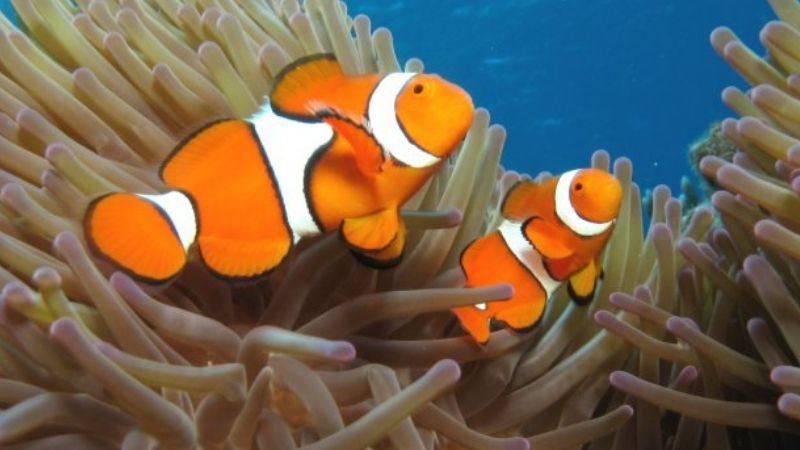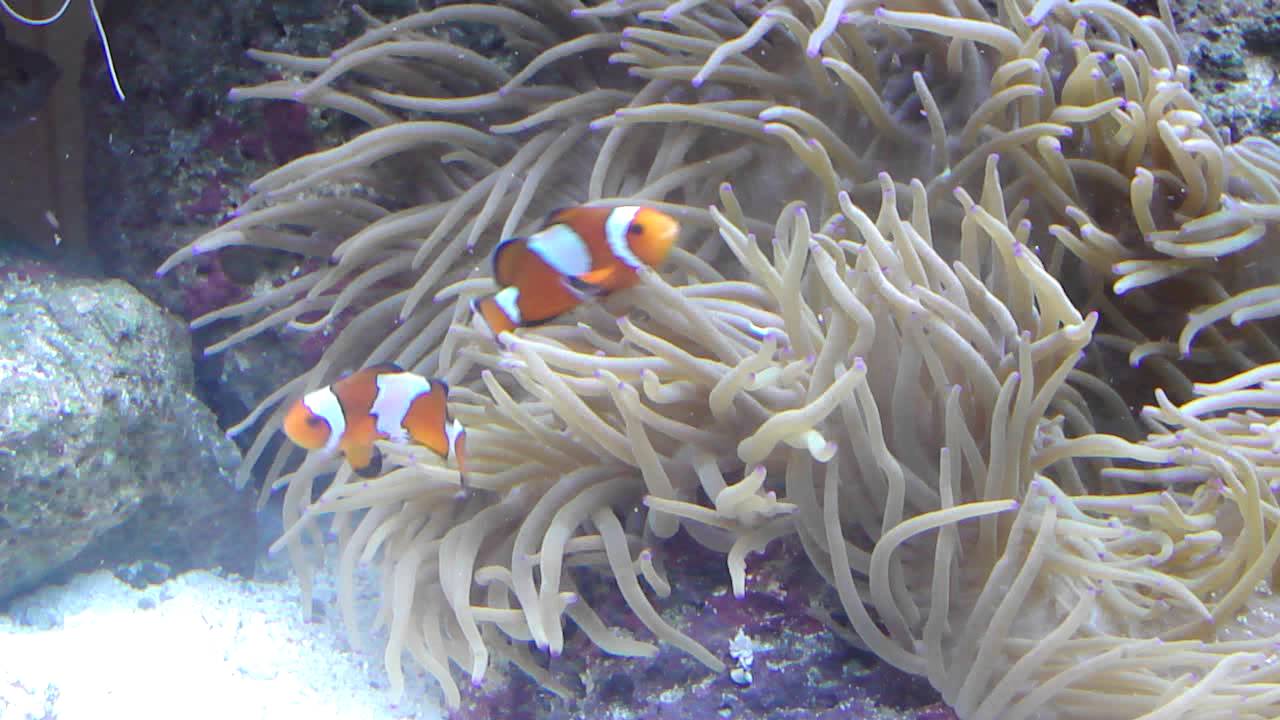Clownfish Fighting
Clownfish Fighting: Understanding the Root Cause of This Aggressive Behavior
Clownfish fighting can be a concerning issue for aquarium owners. It's not only stressful to see your beloved pets engage in aggressive behavior, but it can also lead to injuries and even death among the clownfish. If you're facing this problem and want to know why your clownfish are fighting, read on to find out more.
The main reason behind clownfish fighting is territorial behavior. In their natural habitat, clownfish form a matriarchal society where a dominant female resides in a sea anemone, and other fish form a hierarchy based on their size and aggressiveness. In captivity, however, the same amount of space might not be available to the fish, so they have to compete to establish their territory. This competition leads to clownfish fighting, which can vary in intensity and frequency depending on the fish's personality traits and the tank's size.
The good news is that in most cases, clownfish fighting is not a sign of illness or an unhealthy environment. However, if you notice that one of the fish is being bullied excessively, injured, or excluded from food or shelter, it's time to intervene and take action.
To prevent clownfish fighting, make sure your tank is big enough to accommodate all the fish and has enough hiding spots to create a peaceful environment. You can also try adding live plants or decorations to provide more space and break up the line of sight between aggressive fish. Lastly, if the fighting doesn't subside, consider separating the fish into different tanks.
Personal Experience: Dealing with Clownfish Fighting in My Tank
I've been a passionate aquarium owner for years, and I love my clownfish dearly. Last month, I noticed that two of my fish were chasing each other aggressively, and one of them had a wound on its tail. At first, I thought it was just a harmless play, but the behavior didn't stop, and I realized I had to intervene. After doing some research, I found out that my tank was probably too small for all my fish, and I bought a bigger aquarium with more hiding spots and plants. Since then, the clownfish aggression has decreased significantly, and all the fish seem much happier.
If you're facing a similar situation, don't panic and take immediate action. Identify the root cause of clownfish fighting and try to solve it by creating a peaceful environment for your pets.
Dealing with Aggressive Males: Understanding Clownfish Fighting in Detail
While territorial behavior is the main cause of clownfish fighting, some fish are more aggressive than others, especially males during mating season. Male clownfish become more territorial and assertive as they prepare to mate, which can lead to intense fights among males vying for the female's attention. This can also result in the exclusion of other fish from food or shelter, which can lead to illness and death.
To prevent male aggression, make sure you have at least one female in the tank to distribute attention. You can also try introducing new fish simultaneously to avoid establishing a pre-existing hierarchy that male clownfish might feel threatened by.
Introducing New Fish to Prevent Clownfish Fighting
When introducing new fish to your tank, it's essential to follow a few steps to minimize the risk of clownfish fighting. First, make sure the new arrivals are of similar size and temperament to the existing fish. You can also introduce the new fish after the lights go off so that the existing fish are sleeping and less likely to be aggressive. Lastly, monitor the situation closely, and be ready to separate the fish if they start fighting.
Preventing Clownfish Fighting in a Community Tank
If you're keeping clownfish along with other fish, it's crucial to ensure that their tank mates are compatible and have a peaceful disposition. Some fish might be more territorial or aggressive than others, leading to a stressful environment for your clownfish. Careful research and planning can ensure a healthy and peaceful community tank.
Question and Answer
Q: Can clownfish live without a sea anemone?
A: Yes, clownfish can survive without a sea anemone, but they might not display their full range of natural behaviors.
Q: Can a smaller clownfish mate with a larger one?
A: Yes, clownfish of all sizes can mate and produce offspring.
Q: What is the lifespan of a clownfish?
A: Clownfish can live up to 10 years in the right environment.
Q: Can I keep multiple females in a tank?
A: Yes, but you need to make sure there is enough space and resources for all the fish.
Conclusion
Clownfish fighting is a natural behavior that can be managed with the right knowledge and environment. By creating a peaceful tank with enough hiding spots and resources, you can prevent aggressive behavior among your clownfish. Remember, the happiness and health of your pets depend on the care and attention you give them.
Gallery
Clownfish Fighting

Photo Credit by: bing.com / clownfish
Clownfish Fighting - YouTube

Photo Credit by: bing.com / clownfish fighting
What Causes Are Clownfish Fighting? Don't Worry Too Much

Photo Credit by: bing.com /
Why Are My Clownfish Fighting? (And What To Do About It) - Avid Aquarist

Photo Credit by: bing.com /
Clownfish Fighting - YouTube

Photo Credit by: bing.com /